(ENG/ESP)The Languages of the Niger Delta Region of Nigeria/Los idiomas de la región del Delta del Níger en Nigeria.
As a History student at the University of Uyo, I’ve come across many aspects of our culture that I once took for granted. But the deeper I go into the course, the more I realize that language is one of the most powerful tools that shapes a people's identity. This has become even clearer through my study of the Niger Delta region of Nigeria. This region is not only rich in crude oil and natural gas but also in culture, diversity and especially language.
The Niger Delta is home to several ethnic groups, each with its own unique language or dialect. It is made up of states like Rivers, Bayelsa, Delta, Akwa Ibom, Cross River, Edo, Ondo, Abia and Imo. Although not all of them are always included in every definition of the region, they all contribute to its linguistic and cultural richness.
Let me start with the Ijaw language. The Ijaw people are one of the oldest and largest ethnic groups in the Niger Delta. They speak various dialects such as Kalabari, Okrika, Nembe, Izon and more. What makes the Ijaw language interesting is how the dialects vary from one community to another. Despite these variations, there are common elements that still bind them together. In many communities, the Ijaw language is used for cultural rites, storytelling, fishing songs and oral traditions.
Next are the Urhobo and Isoko people of Delta State. Their languages are closely related, and some even argue they are dialects of the same root language. Both groups use their languages in daily communication, traditional ceremonies and folk music. As I studied more about them, I found that these languages are not just tools for speaking but for expressing identity and community life.
In Bayelsa State, you will find the Nembe and Ogbia languages, both under the Ijoid group. These languages carry the stories, struggles and histories of the people. A lot of traditional songs and chants are preserved in these tongues. I once listened to a recorded Nembe war song in class, and even though I could not understand the words, the passion in the voices said everything.
Then we have the Ibibio and Efik languages in Akwa Ibom and Cross River States. As someone from Akwa Ibom, I grew up hearing Ibibio at home and in public spaces, but I never really appreciated it until I saw it being analyzed in an academic setting. Ibibio and Efik are not just local languages, they are full of metaphors, wise sayings and proverbs. Many of the folktales I heard growing up have roots in these languages, especially those that teach morals and community values.
Another major language is Itsekiri, spoken in parts of Delta State. It has been influenced by Yoruba, Portuguese and English over time due to early missionary contact and trade. Itsekiri sounds soft yet elegant, and it plays a vital role in the royal traditions of the Warri Kingdom.
Edo language is spoken by the Bini people in Edo State. While Edo is sometimes seen as separate from the core Niger Delta zone, its history and cultural ties make it impossible to ignore. The Edo language has a proud literary history, with oral poetry, traditional praise songs and ancient court rituals all embedded in the language. As a student of history, the link between language and governance in the Benin Kingdom is something that deeply interests me.
There is also the Ukwuani language, spoken by the Ndokwa people in Delta State. It is less talked about but equally important in the linguistic map of the Niger Delta. Their festivals, age-grade systems and rituals are all communicated in their mother tongue. It shows that even smaller groups have languages that matter in the broader narrative.
While studying these languages, I’ve come to understand that many of them are endangered or gradually fading. Modern pressures like urbanization, Western education, and migration are forcing many young people to abandon their indigenous languages for English or Pidgin. This is why documentation and language preservation have become urgent. Some NGOs and cultural groups are now recording folk stories, translating the Bible and producing radio programs in native languages to keep them alive.
What fascinates me most is how language in the Niger Delta goes beyond communication. It is a record of migration patterns, colonial interaction and resistance movements. It reveals how people identify themselves and how they differentiate outsiders from community members. In times of war, negotiation and trade, these languages played major roles.
My study of the Niger Delta languages has taught me that language is more than grammar or words. It is the spirit of a people, the map of their experiences and the soul of their history. As a future historian, I believe our responsibility is not only to write about people but to help preserve what makes them unique. Language is one of those treasures. And in the Niger Delta, we are blessed with many.
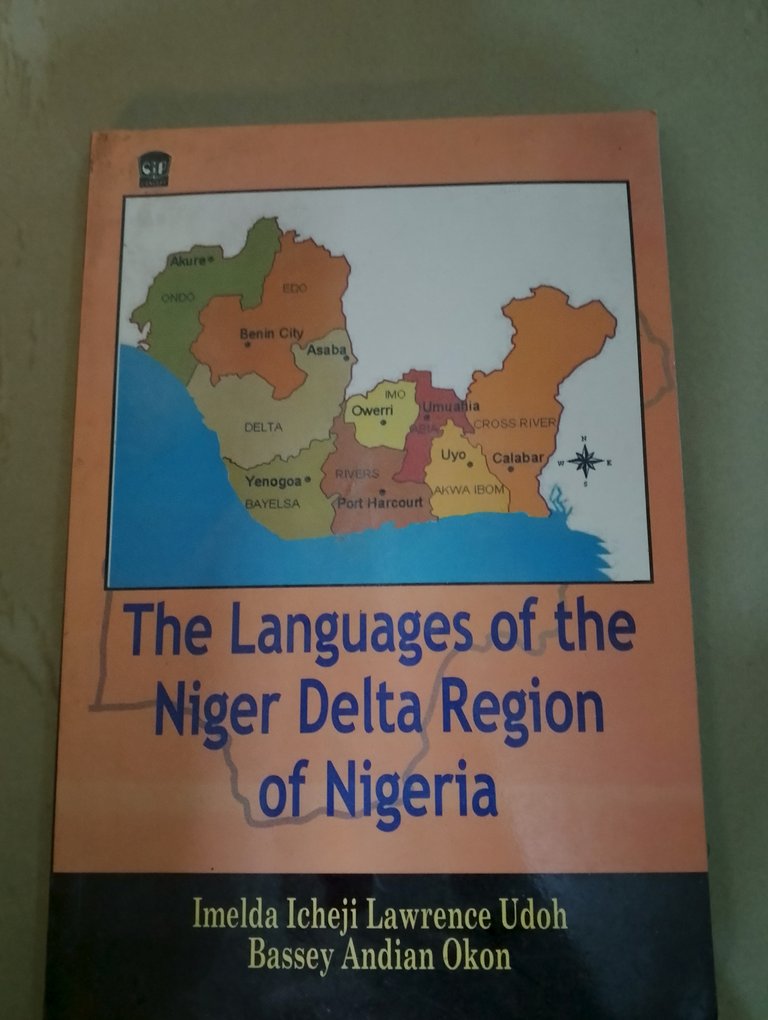
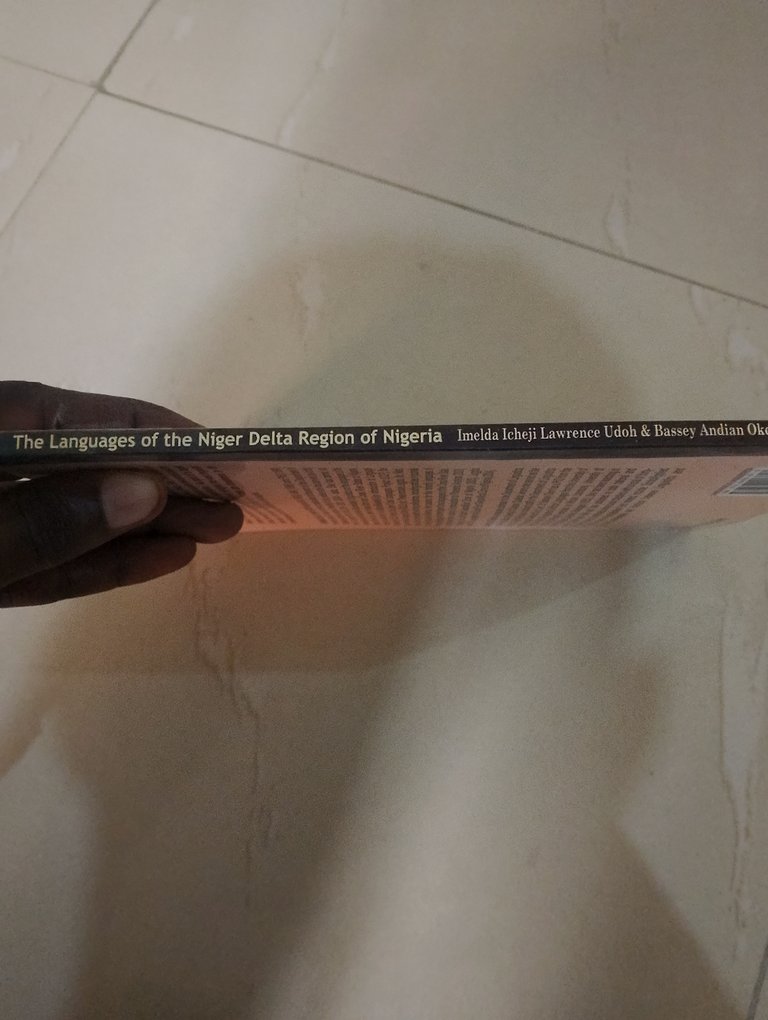
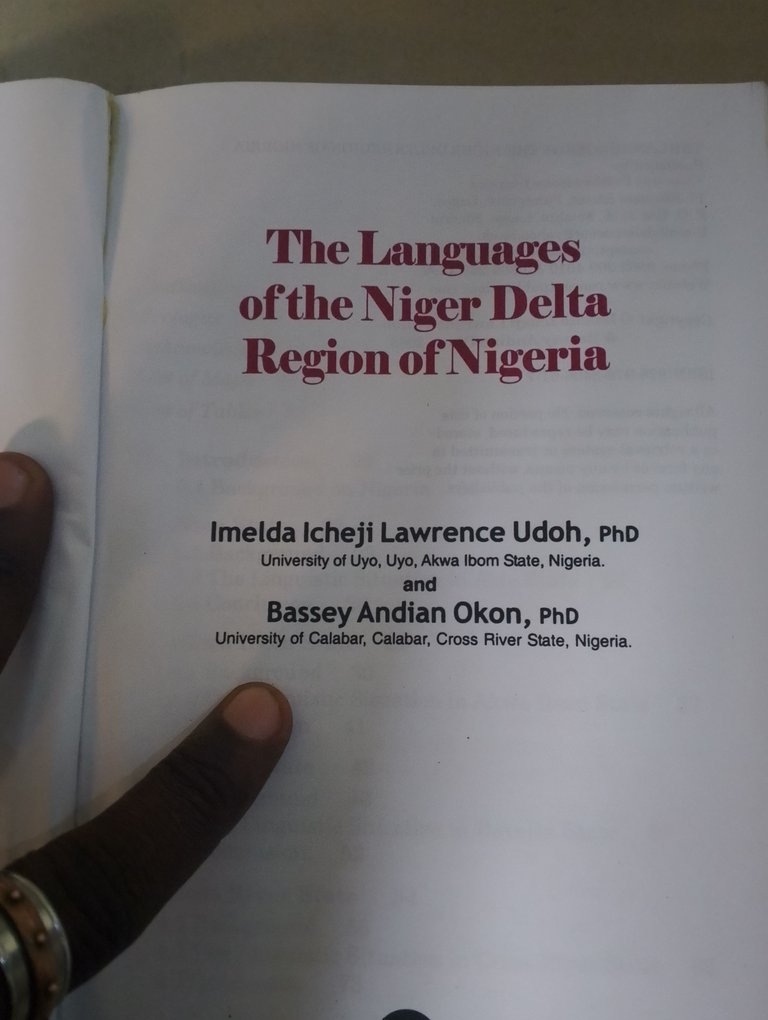
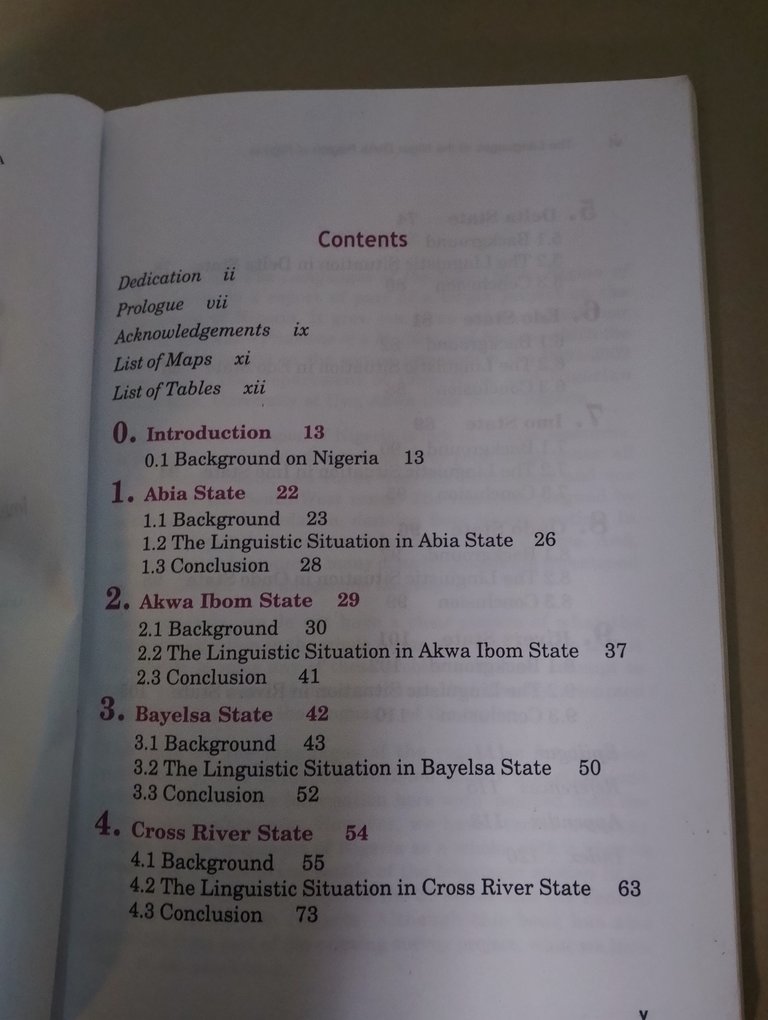
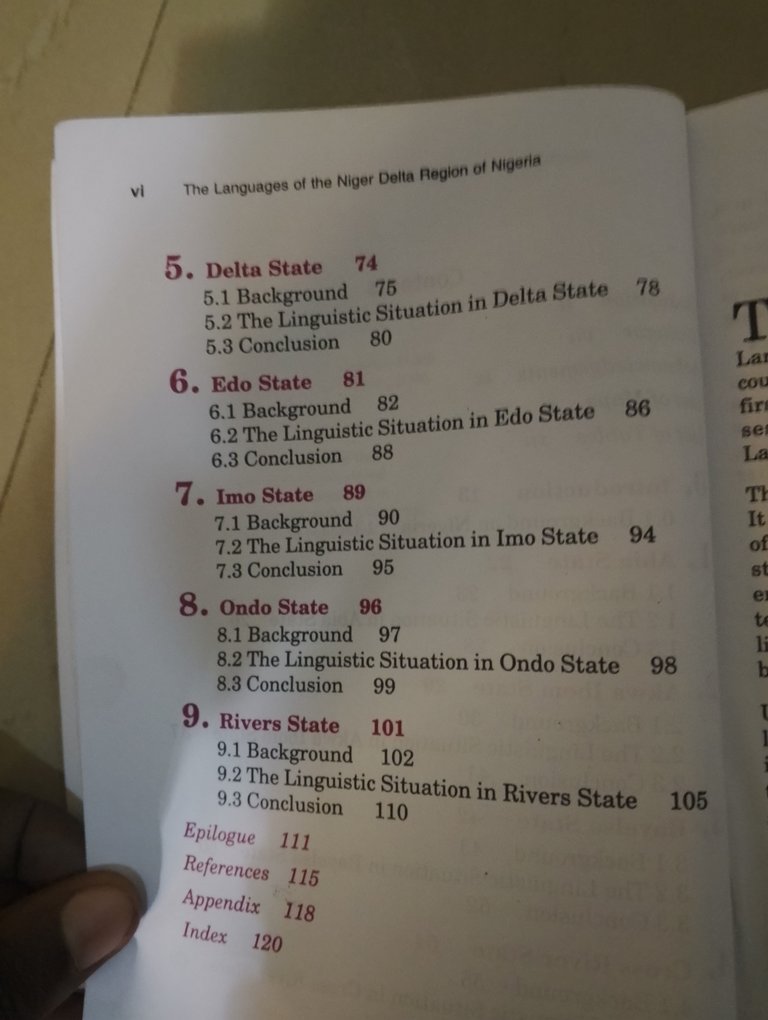
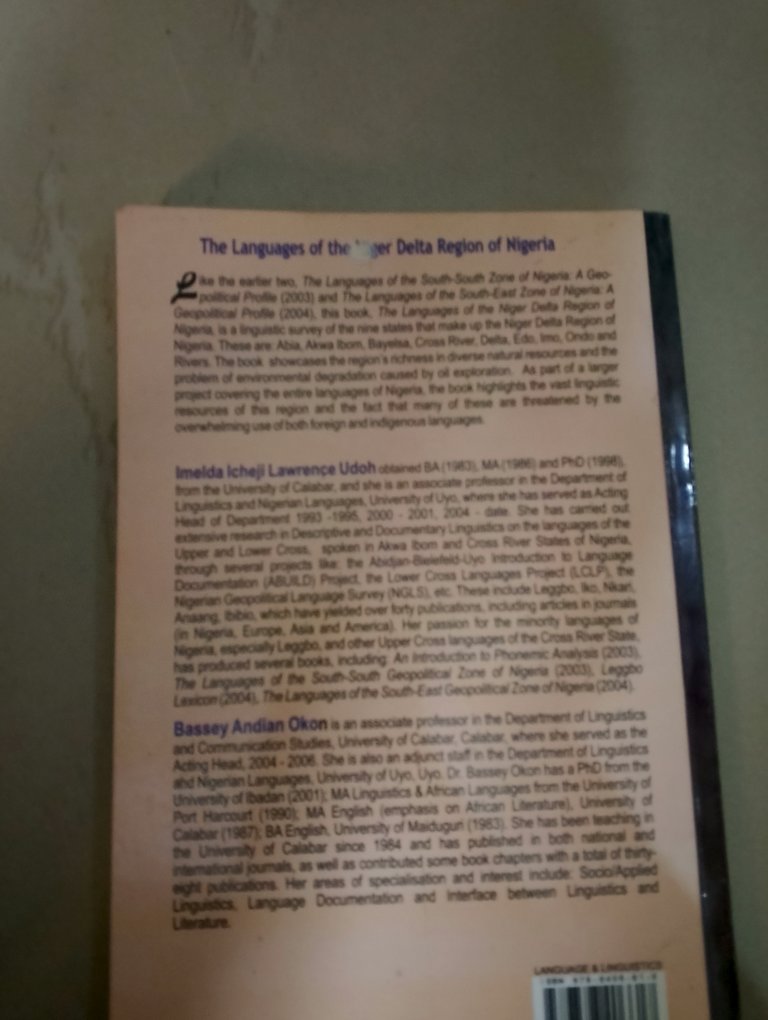
Los idiomas de la región del Delta del Níger en Nigeria
Como estudiante de Historia en la Universidad de Uyo, mi formación académica me ha llevado a descubrir y valorar muchos aspectos de nuestra cultura que antes no entendía del todo. Una de las cosas que más me ha llamado la atención es el papel de la lengua en la construcción de la identidad de un pueblo. Esto se ha hecho evidente mientras estudiaba la región del Delta del Níger en Nigeria, una zona conocida principalmente por su riqueza en petróleo y gas, pero que también destaca por su diversidad cultural y lingüística.
El Delta del Níger alberga una gran variedad de grupos étnicos, y cada uno posee su propio idioma o dialecto. Esta región está conformada por estados como Rivers, Bayelsa, Delta, Akwa Ibom, Cross River, Edo, Ondo, Abia e Imo. Aunque no todos estos estados se incluyen siempre en la definición estricta del Delta del Níger, todos aportan algo valioso a su riqueza lingüística y cultural.
Uno de los idiomas más destacados es el ijaw. Los ijaw son uno de los grupos étnicos más antiguos y numerosos de la región. Hablan distintos dialectos como kalabari, okrika, nembe, izon y otros. Lo interesante de la lengua ijaw es que, a pesar de la diversidad de dialectos entre las comunidades, hay elementos comunes que les permiten mantener una identidad compartida. Esta lengua se usa mucho en ceremonias tradicionales, cantos de pesca, cuentos orales y ritos culturales.
Los pueblos urhobo e isoko del estado de Delta también tienen lenguas propias muy relacionadas entre sí. De hecho, hay quienes afirman que son variantes de un mismo idioma raíz. Ambas lenguas tienen un uso activo en la vida cotidiana, en festivales y en la música folclórica. A medida que profundicé en mi estudio sobre estos grupos, entendí que sus idiomas no son solo herramientas para comunicarse, sino formas de expresar quiénes son y cómo viven en comunidad.
En el estado de Bayelsa encontramos idiomas como el nembe y el ogbia, ambos pertenecientes al grupo ijóide. Estas lenguas guardan las historias, luchas y memorias del pueblo. Muchos cantos tradicionales aún se conservan en estos idiomas. Recuerdo que en una de mis clases escuchamos una grabación de un canto de guerra nembe. Aunque no entendía las palabras, la fuerza en las voces transmitía una emoción profunda.
En los estados de Akwa Ibom y Cross River se hablan el ibibio y el efik. Yo crecí en Akwa Ibom, así que el ibibio siempre me ha rodeado en mi entorno familiar y comunitario, pero nunca lo valoré tanto hasta que empecé a estudiarlo desde una perspectiva académica. Estas lenguas están llenas de proverbios, metáforas y dichos sabios. Muchos de los cuentos que escuchaba de niño tienen raíces en el ibibio y el efik, y la mayoría de ellos transmiten valores morales y normas de convivencia.
El itsekiri, hablado en partes del estado de Delta, es otro idioma importante. Tiene influencias del yoruba, el portugués y el inglés debido al contacto con misioneros y comerciantes desde hace siglos. El itsekiri tiene un tono suave y elegante, y desempeña un papel clave en las tradiciones reales del antiguo Reino de Warri.
El idioma edo, hablado por el pueblo bini en el estado de Edo, aunque a veces se considera fuera del Delta central, tiene lazos históricos que lo vinculan fuertemente a la región. El edo es rico en expresiones culturales, con una larga tradición oral que incluye poesía, cantos de alabanza y rituales de la corte real. Como estudiante de historia, me llamó la atención la forma en que el idioma se entrelaza con el sistema de gobierno en el antiguo Reino de Benín.
Otro idioma menos conocido pero relevante es el ukwuani, hablado por el pueblo ndokwa en el estado de Delta. Aunque no suele destacarse en los estudios generales, es muy significativo dentro del mapa lingüístico del Delta. Sus festivales, estructuras por edades y rituales son conducidos en su lengua materna, mostrando que los grupos pequeños también tienen idiomas que cuentan.
Durante mis estudios he llegado a comprender que muchos de estos idiomas están en peligro. La urbanización, la educación occidental y la migración están haciendo que los jóvenes abandonen sus lenguas indígenas en favor del inglés o del pidgin. Por eso, la preservación y documentación de estas lenguas es una urgencia. Algunas organizaciones culturales y ONGs están grabando cuentos tradicionales, traduciendo textos sagrados y produciendo programas de radio en lenguas nativas como forma de preservación.
Lo que más me fascina es que en el Delta del Níger el lenguaje no solo sirve para hablar. También nos cuenta cómo han migrado los pueblos, cómo interactuaron con los colonizadores y cómo resistieron. El idioma revela cómo se identifican a sí mismos y cómo distinguen entre “nosotros” y “los otros”. En tiempos de guerra, comercio o negociación, el lenguaje ha sido clave.
Mi estudio de los idiomas del Delta del Níger me ha enseñado que una lengua no es solo gramática o vocabulario. Es el espíritu de un pueblo, la huella de su historia y la guía de su camino. Como futuro historiador, siento que mi tarea no es solo escribir sobre los pueblos, sino ayudar a conservar lo que los hace únicos. Y entre esos tesoros, el idioma ocupa un lugar sagrado. Y en el Delta del Níger tenemos muchos que merecen ser protegidos.
You received an upvote ecency
Wow, excellent writing about language. Indeed, language is beyond words but a true Identity treasure of the people. Thank you for sharing this brilliant content.
Thank dear friend for going through this my book